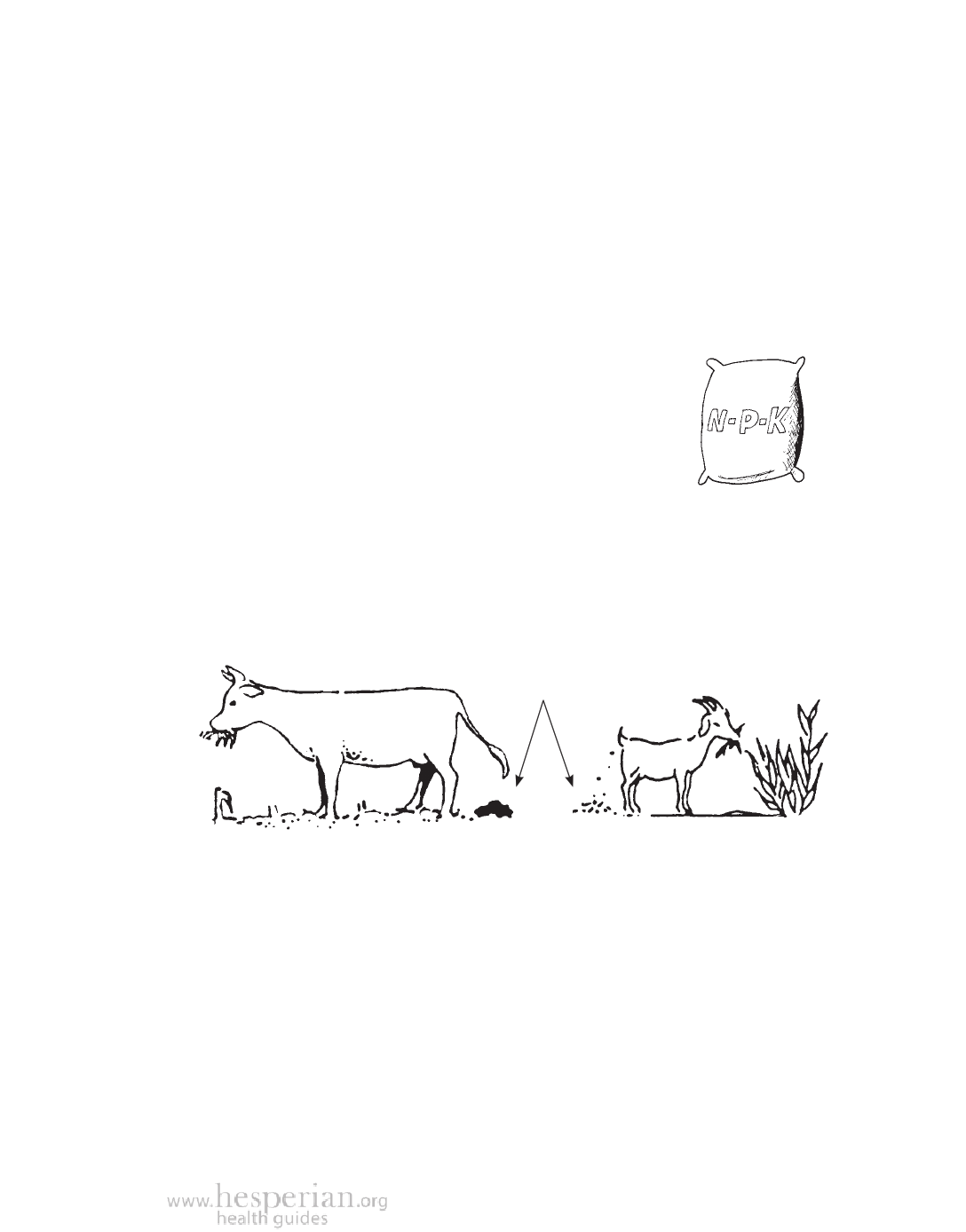
Improving Soil 283
Using heavy equipment to plow, till, turn over, or dig soil can make it
become compacted (pressed down so tightly that no air or space remains). It is
difficult for water or plant roots to get into compacted soil. It is also difficult
for plants to get the nutrients they need from soil that is compacted.
To prevent compacting soil, clear and turn over soil when it is not too wet
or too dry, but moist like a wrung-out cloth. Many farmers turn their soil as
little as possible, add animal manure and crop wastes, and use methods such
as planting pits (see page 295) or green manures (see page 285) to make the
soil loose for planting.
Chemical fertilizers may help now, but can harm later
Chemical fertilizers are costly to both the farmer and
the farm because they damage soil, pollute water, and
create the need for more chemicals. If you look at a bag
of fertilizer from the store, it will have the letters N-P-K.
These letters stand for the main nutrients that plants
need (N is Nitrogen, P is Phosphorous, and K is Potash,
or Potassium). Chemical fertilizers have these chemicals
Chemical fertilizer
in concentrated (very strong) amounts. When these concentrated nutrients
are washed from fields into groundwater and waterways, they can make the
water unhealthy for drinking, washing, and bathing.
Natural fertilizer
The biggest problem for growing crops with chemical fertilizers is that farmers
who use them often stop adding organic matter, such as animal manure, to
the soil. This very quickly causes soils to lose nutrients and become compacted,
leading to pest problems, poor harvests, water loss, and more dependence on
chemical fertilizer. If you use chemical fertilizers, it is important to add natural
fertilizers along with them.
A Community Guide to Environmental Health 2012